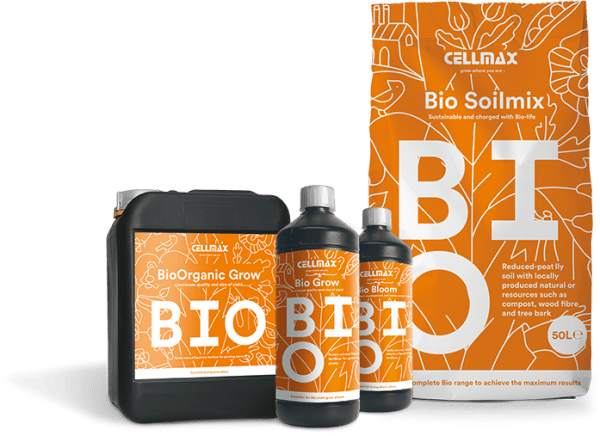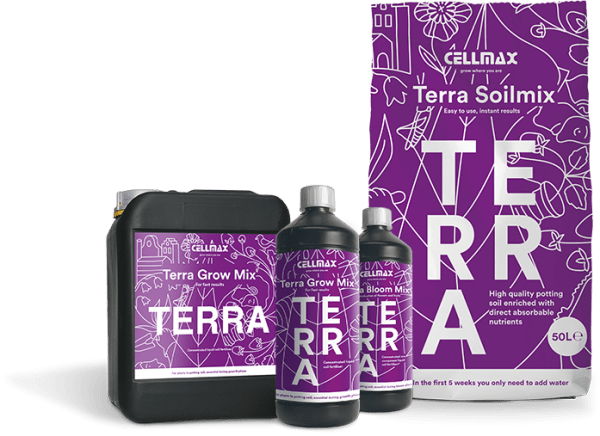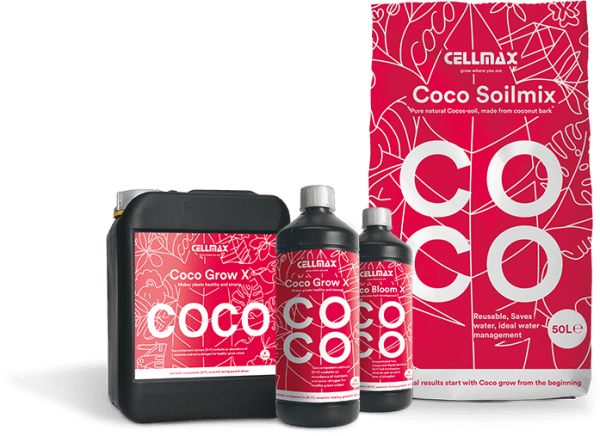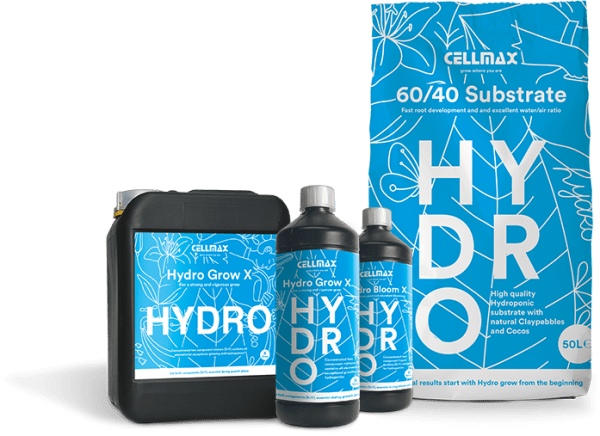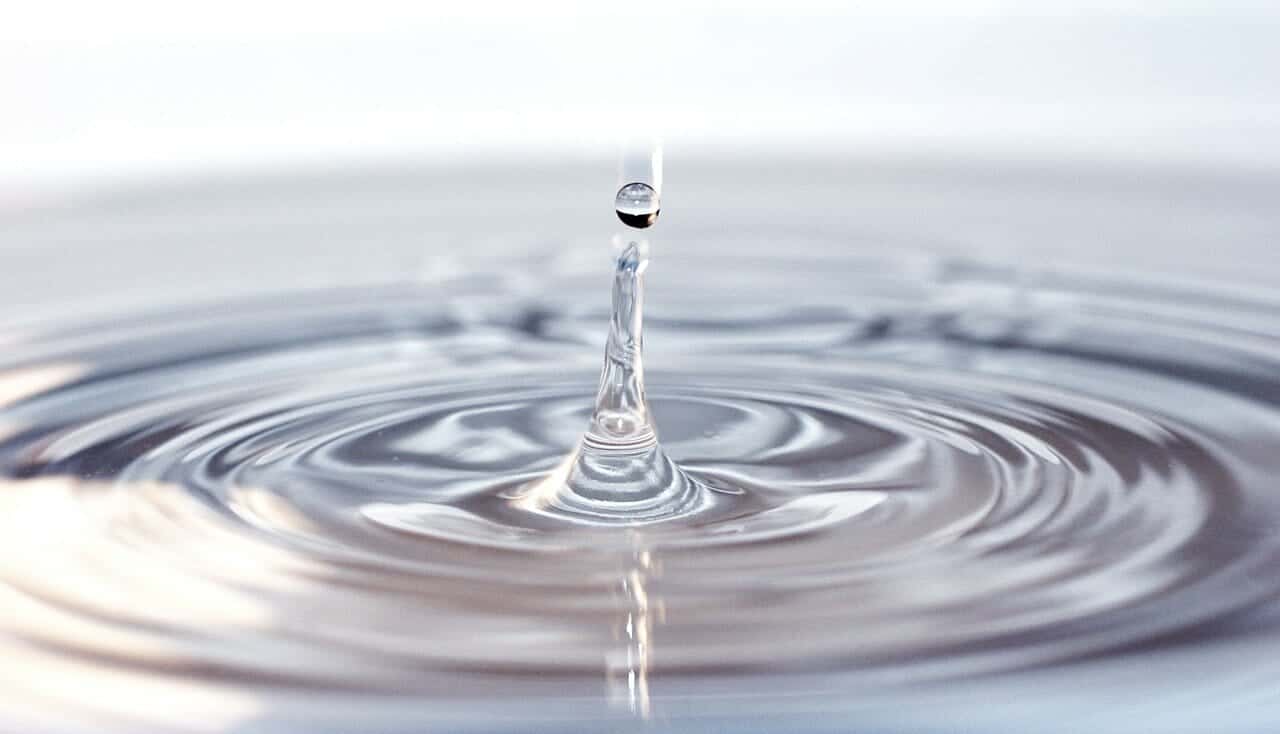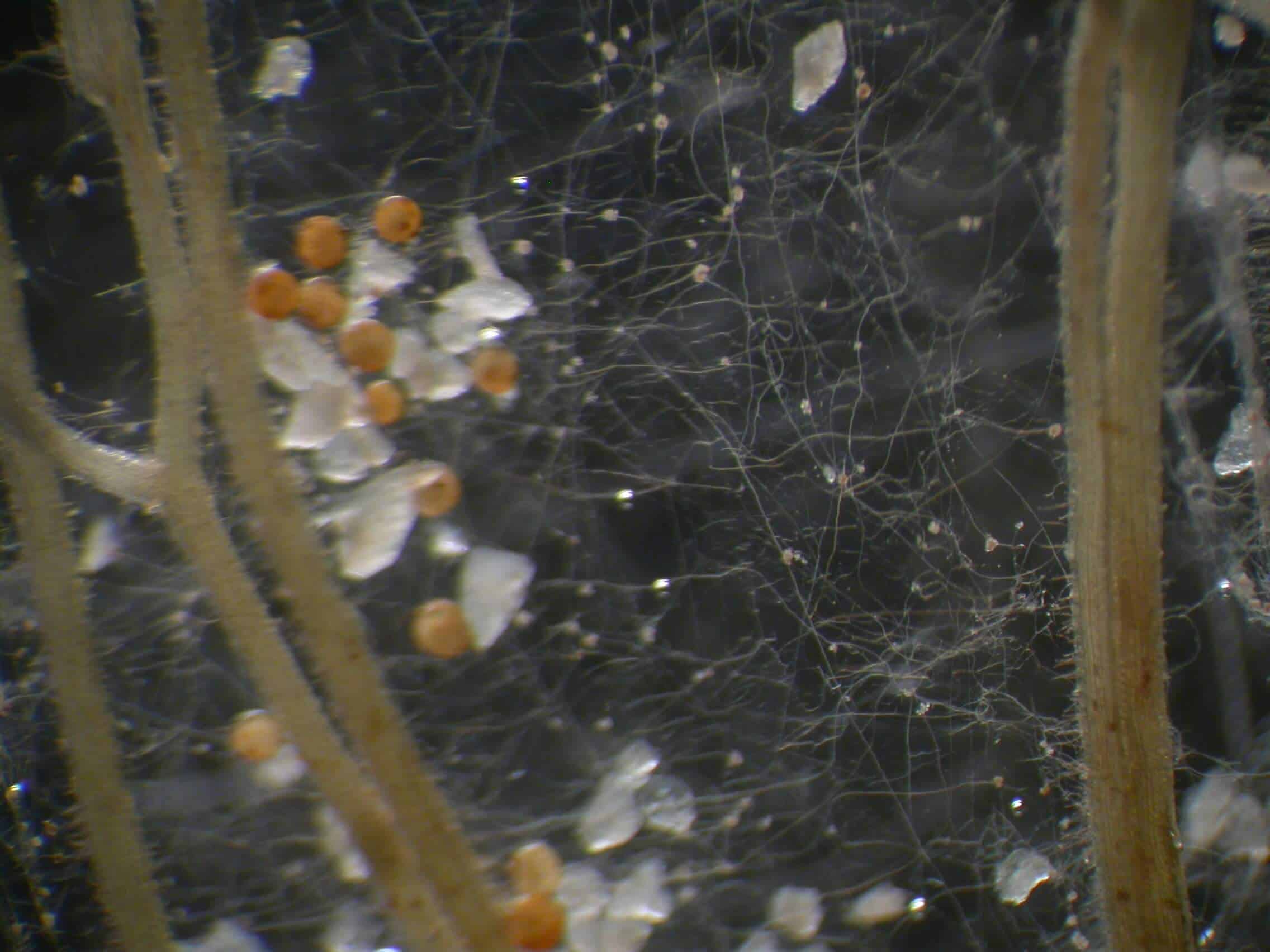The road to Bio - a quest for true sustainability
Are you a conscious grower looking for truly sustainable potting soil? Do you wonder why so many 'organic' products still contain animal fertilisers? Or do you want to know how you as a grower can contribute to a healthier soil, without compromising on results?
At a time when 'organic' and 'sustainable' are often used as marketing labels, we share the story behind a potting soil that substantively lives up to these words. Our 'road to organic.'
Potting soil with a mission
In 2018, we at Cellmax introduced our certified Bio line of potting soil and plant nutrition. It was a 2.5-year development process of intensive testing, measurement and adjustment. The desire was clear: to develop a plant-based potting soil that is as organic as possible without animal fertilisers, with renewable raw materials, and that also works in practice.
Natural process
A fully organic growth process happens in the open ground. There, plants get their nutrients from bacteria, fungi, worms and micro-organisms and return sugars in return. This natural process takes almost two years, while growers naturally expect faster results. Besides, mimicking this soil ecosystem is also very difficult.
Thorough testing, measurable results
In collaboration with Plantresearch from Made, we started testing to come up with an effective composition. We started with small tests on strawberry plants because they quickly show deficiencies. The first test mix was fully sustainable, but no plant wanted to grow on it. Compost seemed a solution, but it also contains heavy metals and is heated before use, which actually undermines sustainability.
When these finally improved, we tested different variations of potting soil in larger set-ups. During these tests, all values, such as pH and nutrient status, were monitored. This is how we finally arrived at a successful, sustainable composition with 25% coir, 25% wood fibre and green compost and 25% certified peat moss peat.
In fruit-bearing plants, such as tomato or sweet pepper, extra nutrition is needed to maintain nitrogen levels. This is why we developed complementary liquid organic fertilisers. Some of this nutrition is quickly absorbed, some is released slowly - exactly what an organic crop needs.
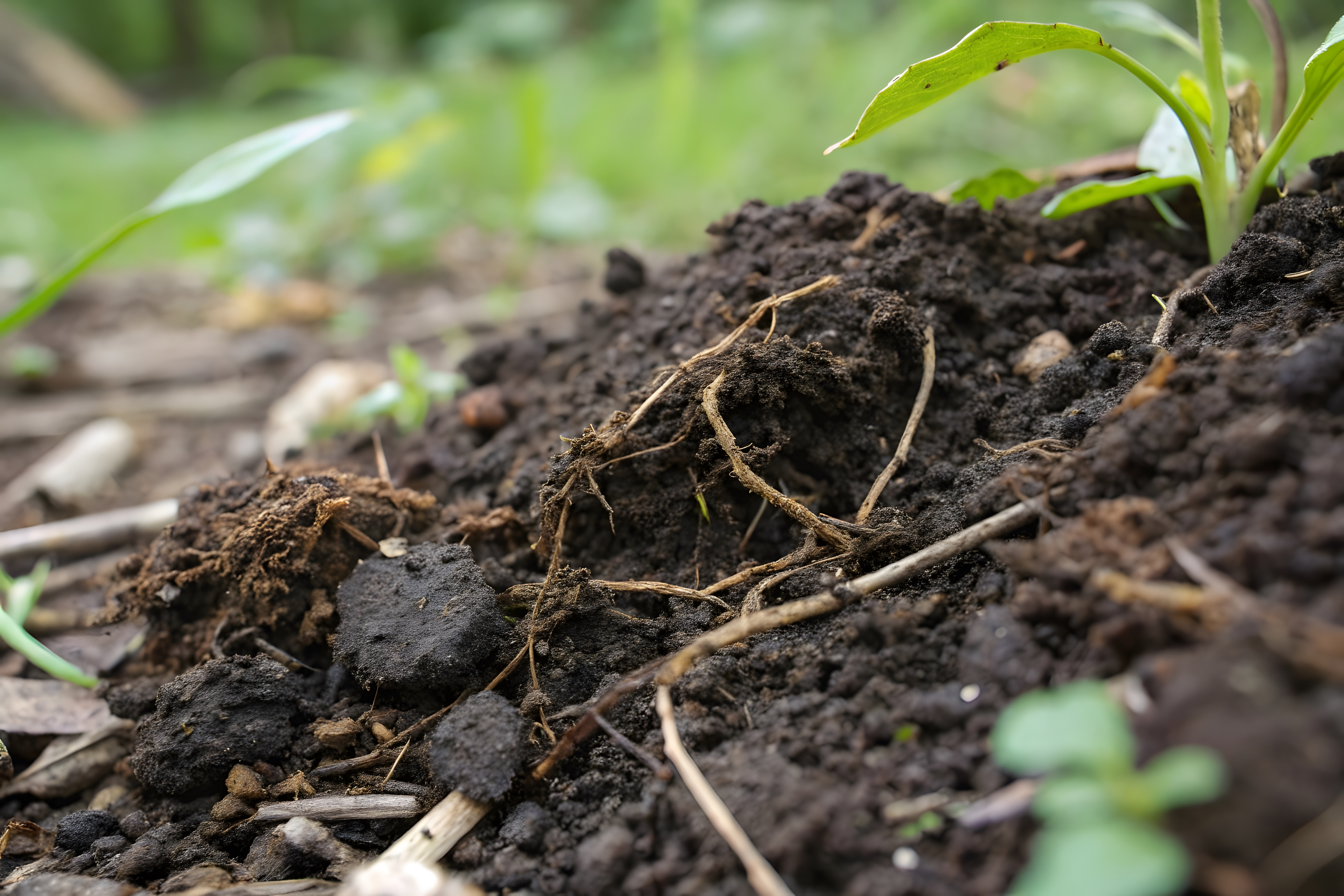
Active soil life
To stimulate the biological process in the potting soil, we have added natural substances to the Bio potting soil such as fulfine and humine. These substances used to be abundant in the soil, but have disappeared due to intensive land use. They are now extracted from filtered groundwater from Groningen peat layers. Grape must has also been added, a residual product from the wine industry that is full of substances that also promote soil life.
Alternatives to peat
Peat is popular in potting soils because of its unique properties (low pH and pure), but its extraction disturbs the ecosystem in the peat layer and releases a lot of CO2. The Bio line therefore works with more sustainable alternatives that have almost the same unique properties:
- RPP-certified peat moss peat, which regrows.
- Innovative peat plants that are grown and can be harvested annually.
- Coconut fibre, a reusable residual product.
Organic, but real
Although many products meet the minimum requirements for organic cultivation, they are not certified - which leaves the question of how organic they really are. The Bio line is certified: every raw material used, every production process and every supplier has been checked and approved according to Control Union requirements. This is how we come closest to 'organic'.
For whom is this potting soil intended?
Our Bio line is designed for all conscious growers who do not compromise on quality or sustainability.
So, are you ready to grow consciously with an organic potting soil that really works?
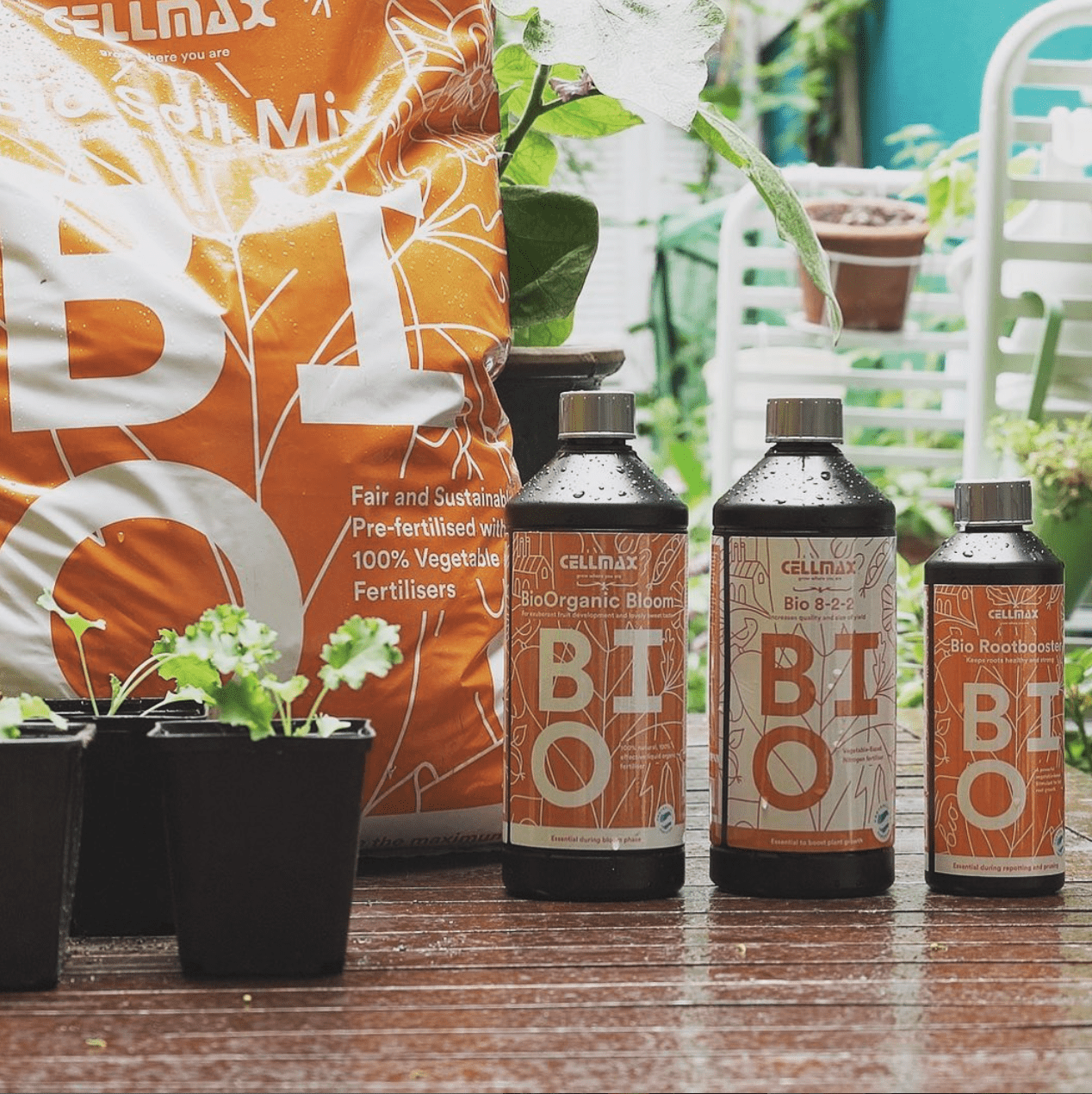
30 days return guarantee
Are you not completely satisfied?
You can return free of charge.
Personal advice
Do you want personal advice?
Call us on number +31(0)503049217
or send us an e-mail.
Copyright 2026 © Cellmax Nutrients B.V.
